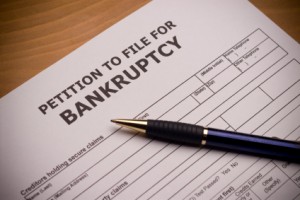Some businesses are choked by debt. When cash flow is insufficient to keep up with loan payments, vendor invoices and other financial obligations, closing the business is often the only option. A Chapter 7 business bankruptcy makes it possible to put an unsuccessful business — and your business debt — behind you so that you can move on with your life.
Thomas W. Lynch & Associates P.C. is a debt relief agency that assists business owners throughout Chicagoland when they decide to close the doors on a failing business. If you have personally guaranteed your business debt, our experienced bankruptcy lawyers can help you evaluate your additional options, including a Chapter 7 personal bankruptcy, a Chapter 13 debt repayment plan, renegotiation of the debt, and other strategies. When combined with a Chapter 7 business bankruptcy, your debt relief plan can put an end to your financial worries.
If you are thinking about closing a business because of unmanageable debt, call Thomas W. Lynch & Associates P.C. at (708) 598-5999 to make an appointment with a bankruptcy attorney. You can also fill out our contact form to request a free consultation.
Advantages of a Chapter 7 Business Bankruptcy

If you are the sole proprietor of a business that has not incorporated, there is no legal distinction between your business debt and your personal debt. A Chapter 7 bankruptcy will erase your business as well as your personal debts. If most of your debts are business debts, however, you do not need to pass the “means test” that prevents some people with debt problems from filing a Chapter 7 bankruptcy.
If your business is incorporated, it exists a separate legal entity and is responsible for its own debts. Unless you have personally guaranteed those debts, you are not personally responsible for paying them (with the exception of certain tax debts, fines, and penalties). A Chapter 7 business bankruptcy can be a useful tool to manage the debt of your corporation as it goes out of business.
The Bankruptcy Court provides business debtors with vital protections. They include:
- Ending creditor harassment. As soon as you file your bankruptcy petition, the Bankruptcy Court will enter an automatic stay that requires your creditors to stop making collection efforts.
- Stopping lawsuits. If your business has been sued for nonpayment of debt, the lawsuit cannot proceed. You stop paying costly legal fees and save the time that you were devoting to litigation.
- Orderly liquidation of business. If you know your business cannot survive, it is often simpler and less time consuming to hand it over to a bankruptcy trustee than it is to deal with the competing demands of creditors that each want as much as they can get from your business assets.
To learn whether a Chapter 7 business bankruptcy is right for you, call Thomas W. Lynch & Associates P.C. at (708) 598-5999. Initial consultations are free and our services are always confidential. Submit our online contact form if you prefer to have our staff get in touch with you.
Client Testimonial:
“This place was extremely helpful during my bankruptcy. You guys made going through a very hard time in our lives much better. Thank you!” ~ Anna, bankruptcy client
How a Chapter 7 Bankruptcy Helps You Close a Business
A Chapter 7 business bankruptcy provides a mechanism for liquidating a business when the amount of its debt exceeds the value of its assets. When you file a Chapter 7 business bankruptcy, all property that your business owns becomes part of the bankruptcy estate. A bankruptcy trustee is appointed who takes charge of that property. Assets that have been used to secure a debt will probably be turned over to the creditor that has a lien against that property. The trustee will sell the other property and distribute the proceeds to the unsecured creditors of the business.
Since the responsibility belongs to the trustee, not to the business owner, you may be able to walk away from your business with no further worries by filing a Chapter 7 bankruptcy.
In some cases, however, the immediate filing of a Chapter 7 business bankruptcy may be unwise. If the business owns assets that are not encumbered by liens, it might be to your benefit to sell those assets yourself. The Bankruptcy Code sets limits on the amount of money you can take out of a business before filing bankruptcy. In some cases it makes sense to delay filing bankruptcy to avoid the claim that you have taken too much money out of the business. In other cases it makes sense to avoid bankruptcy and to liquidate the business on your own, particularly when you are personally liable for a large part of the business debt.
Every case is different and the Bankruptcy Code is complex. You need an experienced attorney with a thorough understanding of bankruptcy law to help you decide upon the best approach to winding down or closing your business.
Get the advice you need by meeting with a bankruptcy lawyer at Thomas W. Lynch & Associates P.C. Complete our online contact form or call (708) 598-5999 to arrange your free, confidential consultation at one of our convenient offices.
